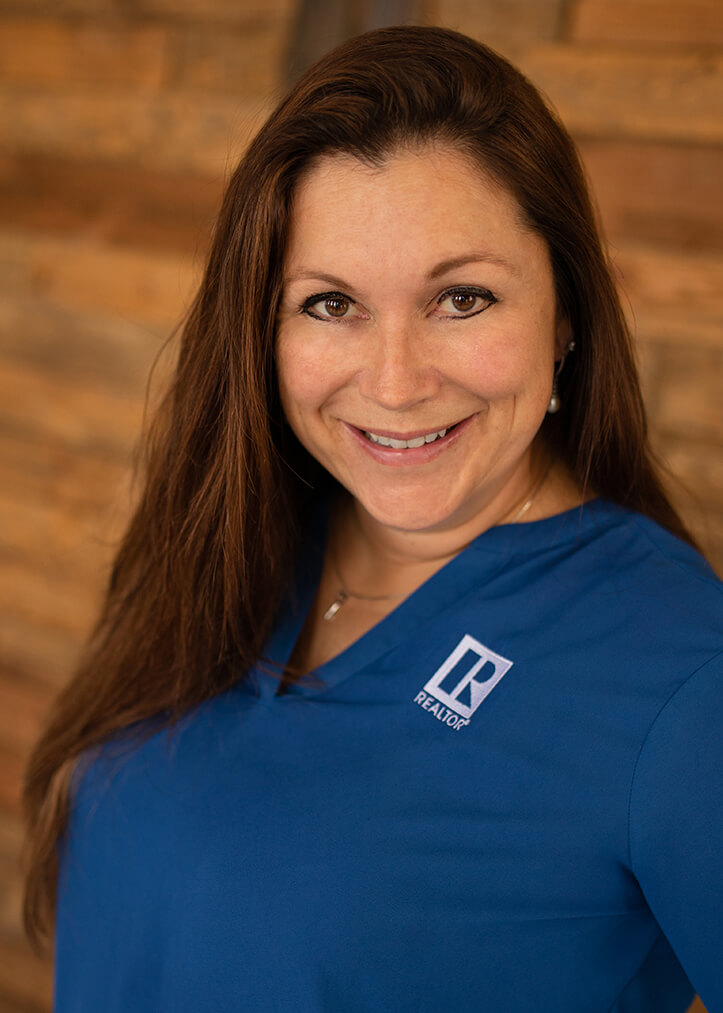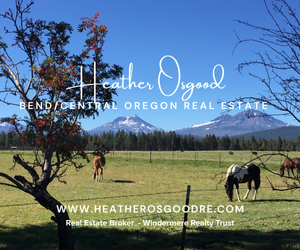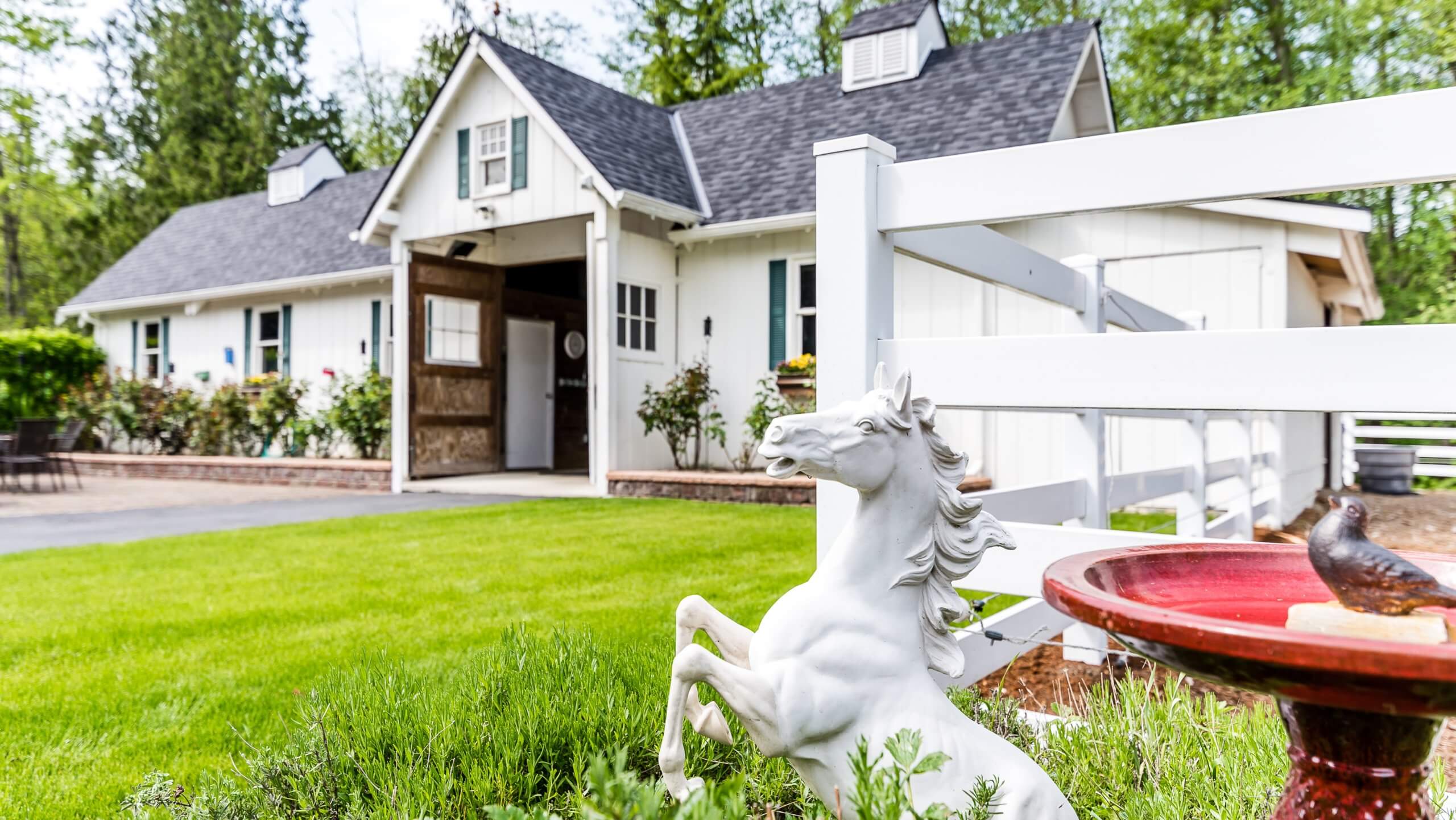This year the Northwest real estate market has found itself in usual circumstances. Many issues are a continuation of what we’ve been experiencing for a few years, but this year we saw some new factors layered on top.
Low Inventory
We’ve seen consecutive years of steady growth in home values, partially driven by a steady decrease of inventory on the market. A balanced market would see about six months of properties active on the market, and in most urban areas, the inventory sits for under two months. Home inventory is tight, causing sellers to worry they won’t find the right home to purchase if they sell, keeping potential listings off the market.
Contingent offers (an offer contingent on the sale of another property) can’t compete in a market flush with multiple, competitive offers, which leaves many folks stuck. Equestrian properties and hobby farms are already a smaller market segment and sellers and buyers feel the extra squeeze in these market conditions.
Low Interest Rates
For each of the last four years I’ve told clients that we’re seeing historically low interest rates, only to have rates drop again. I financed our facility a little over a year ago and am still pleased with the rates we closed with. Rates for a first mortgage fell below 3% this year, and I just saw USDA Farms loans available in the low 2% range. That said, jumbo loan (mortgages for amounts above the Federal Conventional loan limit) rates subtly rose in 2020 and self-employed borrowers saw added restrictions to their ability to obtain a mortgage as a result of COVID-19.
It’s obvious that low interest rates are better for buyers, but they are beneficial to sellers as well. A lower interest rate for a buyer is directly correlated to an increase in the amount a buyer can spend on a home. A 1% change in interest rate on a buyer looking in the $500,000 range can see an increase in borrowing power of $50,000. This is part of what is helping to drive property values up.
Election Year
Each major election cycle I have clients that are concerned about making decisions pending the outcome of a given election. Elections do have direct impact on the real estate industry, but they cause slower shifts than most people expect. Land use policies, tax laws, environmental policies, zoning, and water rights are all issues that impact land value, but those shifts don’t happen in the months following an election.
Bubble Burst
I often hear chatter about buyers concerned that property values are on the verge of a market collapse like we saw around 2008, so they’re hesitant to buy in case the market tanks. The issues we saw during the 2 crash were based almost entirely on faulty lending practices, which resulted in significant changes to lending regulations. This is not a set of conditions that we will see again.
In mid 2016, as foreclosures rolled off the books, we saw rapid recovery, and the market has steadily increased since. That is not to say that there isn’t the potential for changes to the market, but factors like interest rates and inventory have far more impact on appreciation rate of home values.
COVID-19 Impact
If I’d been asked in the early stages of the pandemic how I thought the real estate market would respond, I could never have anticipated what unfolded this year. Property values continued to rise, and with low interest rates, buyers have remained plentiful. 2020 absolutely saw deals fall apart as a result of Covid-19, and buyers unable to move forward due to unemployment or changes in their employment status, but in a market where inventory was already low, the impact was negligible. The last statistic I saw for residential increases in our local county this fall was that home sales were up 14% from the same month a year ago.
This year was the first time we routinely found ourselves in competitive offer situations on hobby farms and acreage property listings. I believe there has been a shift in many people that is causing them to seek a more rural lifestyle. In 2020, “home” became more than where you hang your hat, and I think that caused many people to become restless in their current living situation, driving more buyers to rural listings.
What does that mean if you are thinking about buying or selling in 2021? What I tell my clients is that this is a good time to buy or sell, if the process is well planned. Preparation and experience are key to the successful navigation of this market.
Equestrian properties often have more complex scenarios that can make the process feel overwhelming. I’m always happy to answer any specific questions you may have and would love to have some input/questions for article topics!
See this article in the 2021 January online edition:

Allison Trimble is a Realtor® specializing in equestrian properties, farm and ranch properties, and residential real estate. She’s a former horse trainer, and a current owner, breeder, and non-pro competitor in cow horse and reining events. For many years, Allison wrote a monthly column for The Northwest Horse Source.
Learn more at www.allisonblakerealestate.com






